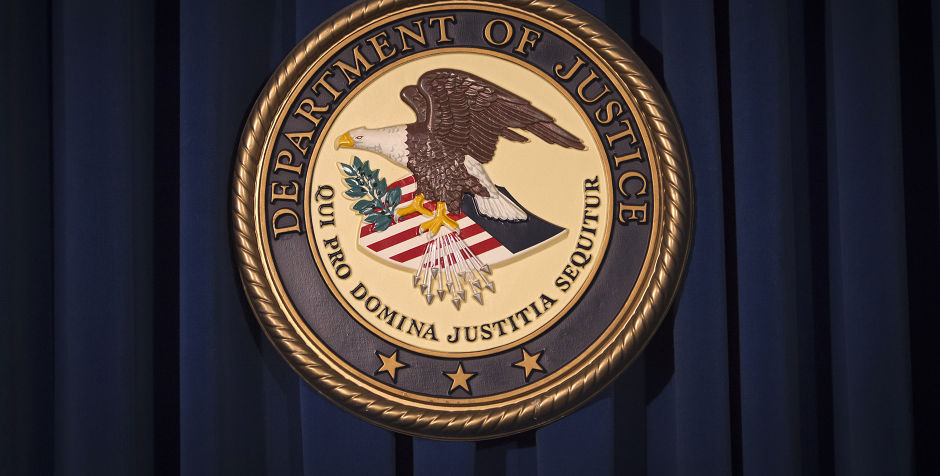Go Where the Evidence Leads: Former Secretary of State Clinton’s Email Felony
There are a number of federal laws that may have been violated by former Secretary of State Hillary Clinton’s unsecured, private email server, but 18 U.S.C § 793 may be the most legally problematic in light of the most recent revelations.
At the ACLJ, we’ve put together an in-depth legal review of the potential violations of federal law, but I want to focus here on one in particular.
Before we get into the law, it’s important to look at the relevant facts.
Here’s what’s been revealed so far. Secretary of State Clinton set up an unsecured, private email server at her house to conduct high-level State Department business. America’s top national security diplomat refused to use the State Department’s secured email server and instead set up her own email home-brew.
The Inspector General’s investigation looked at a random sample, about 40 emails from that server, and found that four emails – just from that small random sample of her emails – contained “classified” information. The Inspector General has now informed Congress that two of those four “classified” emails in fact contained “Top Secret” information.
Now, we’re learning more about the type of “Top Secret” information contained in those two emails from a very small sample of Secretary Clinton’s emails:
A source familiar with the investigation told Fox News late Tuesday that the two emails in question contained operational and geospatial intelligence from the CIA and the National Geospatial-Intelligence Agency (NGA), which produces satellite images.
Now, the particular provision of federal law I want to focus on.
18 U.S.C § 793(f) provides:
Whoever, being entrusted with or having lawful possession or control of any document, writing, code book, signal book, sketch, photograph, photographic negative, blueprint, plan, map, model, instrument, appliance, note, or information, relating to the national defense,
(1) through gross negligence permits the same to be removed from its proper place of custody or delivered to anyone in violation of his trust, or to be lost, stolen, abstracted, or destroyed, or
(2) having knowledge that the same has been illegally removed from its proper place of custody or delivered to anyone in violation of its trust, or lost, or stolen, abstracted, or destroyed, and fails to make prompt report of such loss, theft, abstraction, or destruction to his superior officer—
Shall be fined under this title or imprisoned not more than ten years, or both.
So what does this mean?
Secretary of State Clinton had “possession” of “Top Secret” information, which according to federal regulations (18 C.F.R. 3a.11) means it was “national security information or material which . . . its unauthorized disclosure could reasonably be expected to cause exceptionally grave damage to the national security.”
18 U.S.C § 793(f) governs the “possession” of “photograph, photographic negative, blueprint, plan, map . . . relating to the national defense.” The “Top Secret” “national security information” on then-Secretary of State Clinton’s private email server reportedly contained spy satellite imagery.
18 U.S.C § 793(f)(1) makes it a federal felony for anyone in possession of this type of national defense photos, maps, etc. who “through gross negligence permits the same to be removed from its proper place of custody . . . .” Secretary of State Clinton knowingly and intentionally had an unsecured, private email server set up at her home and used that unsecured, private email server to conduct some of the most national security intensive business possible as Secretary of State (Benghazi, Iraq withdrawal, early stages of the Iran deal, and on and on). She chose to “remove” that classified information – or should have known the high likelihood that she would receive this kind of information as Secretary of State – from the State Department’s secure email server to her own private, unsecured home-brew email server . . . stored not within the highly secured confounds of the State Department, but in her house hundreds of miles away in Chappaqua, New York.
If that’s not “gross negligence,” I don’t know what is. The fact that Secretary Clinton’s camp claims the particular emails in question were not marked “classified” or “top secret” at the time (even though the IG states that the emails “were classified when they were sent and are classified now”) is irrelevant. “Gross negligence” is the standard. And the punishment for this crime is that such person “[s]hall be fined under this title or imprisoned not more than ten years, or both.”
So when the FBI prejudges the facts, saying the investigation isn’t criminal, before analyzing the evidence (and there is likely more evidence to come out), that’s a problem. But regardless of what the FBI said before, it is former Secretary of State Clinton and her inner circle at the State Department (18 U.S.C § 793(f)(2) could cover their actions) that may have problems moving forward.
The more we learn, the worse it gets. At the ACLJ, we’re demanding a full, not faux, investigation by Congress and the Department of Justice (DOJ). The DOJ must go where the evidence leads and not conduct another politically prejudiced fake investigation. Our national security is at stake.
This article is crossposted at RedState.com.
